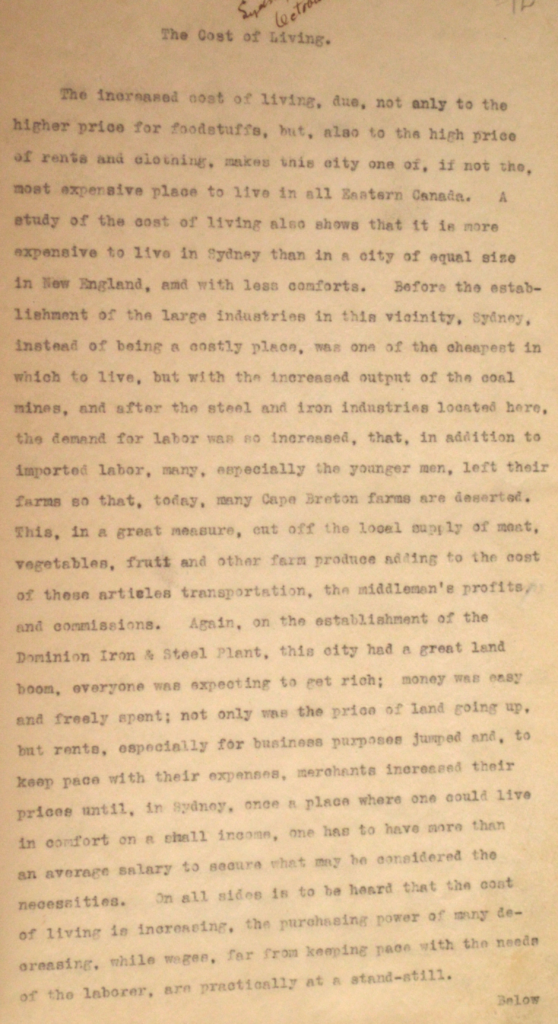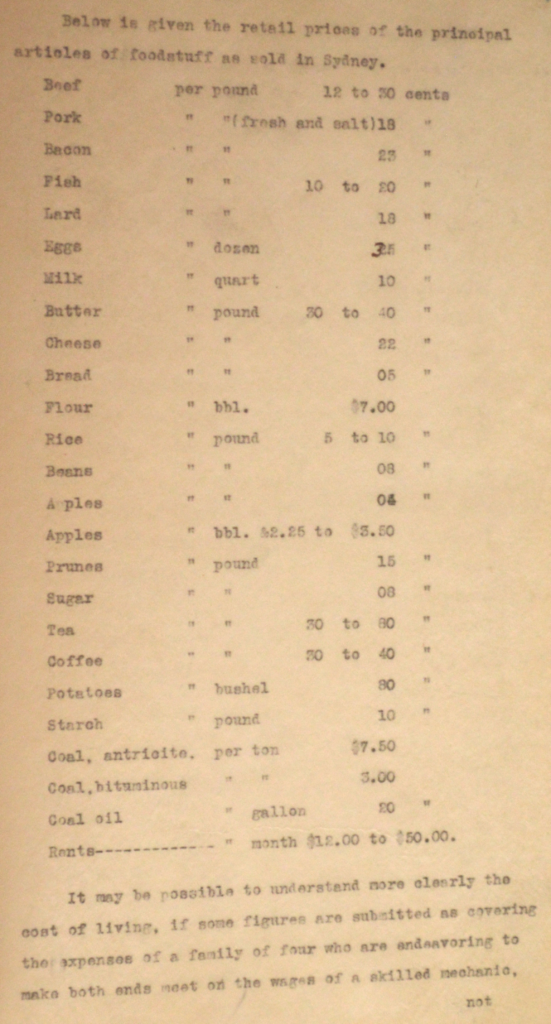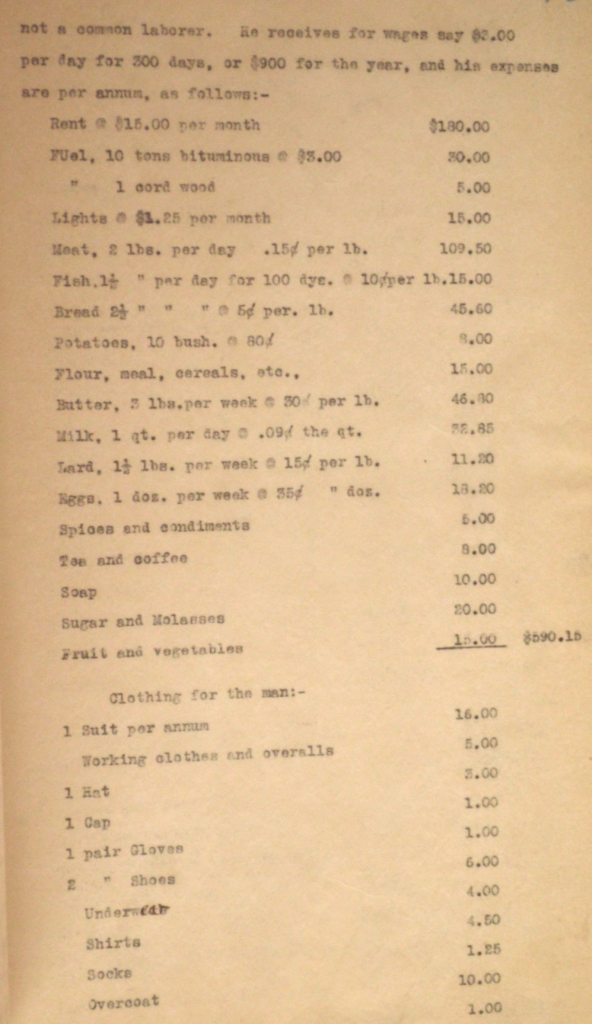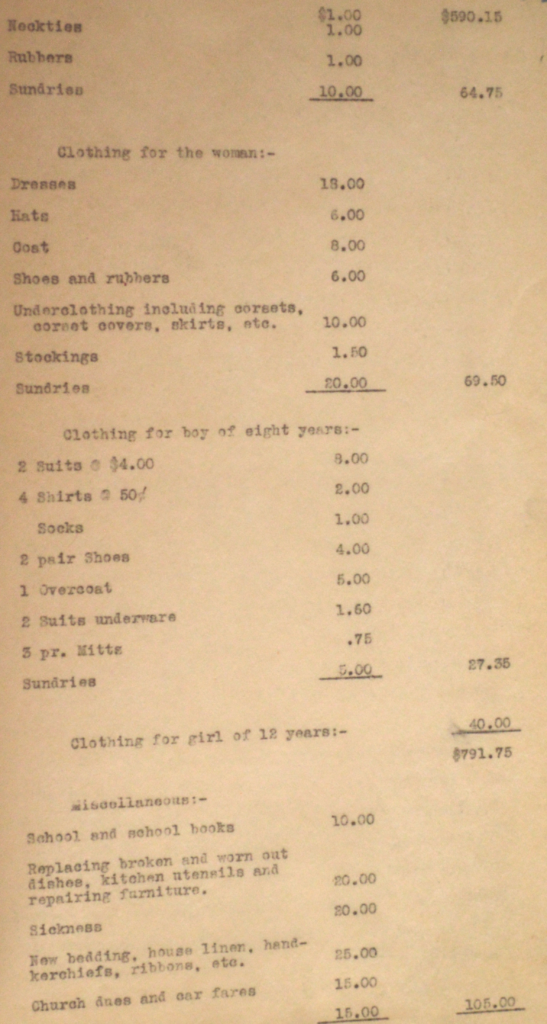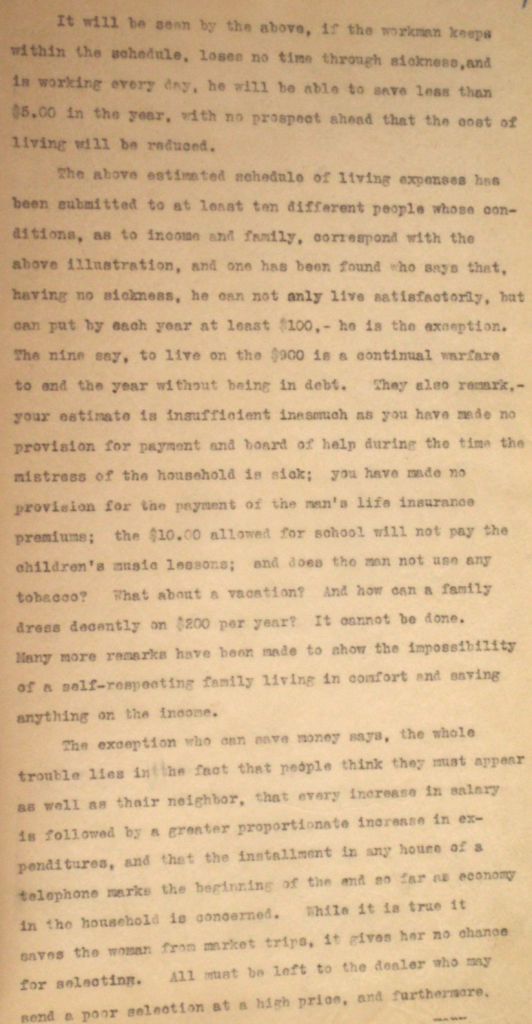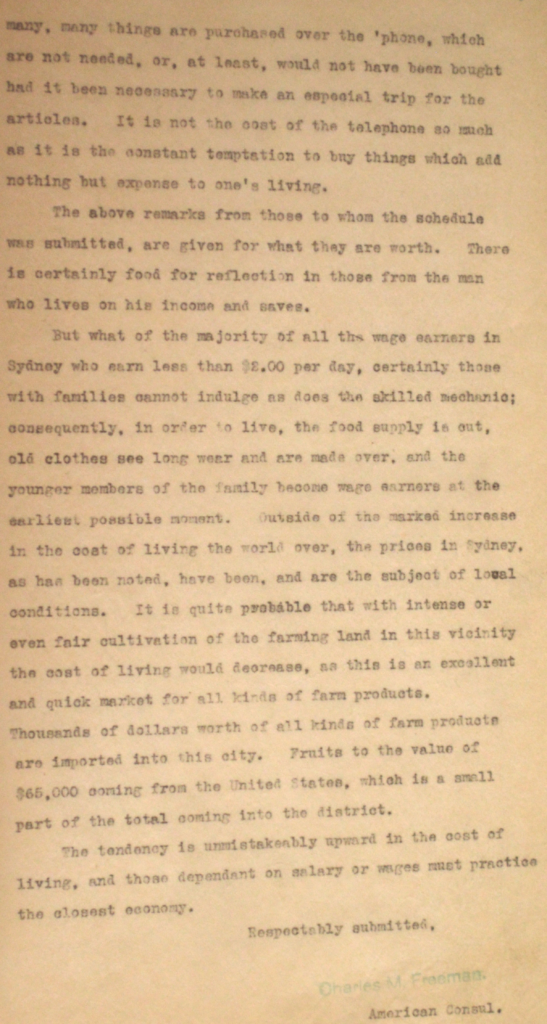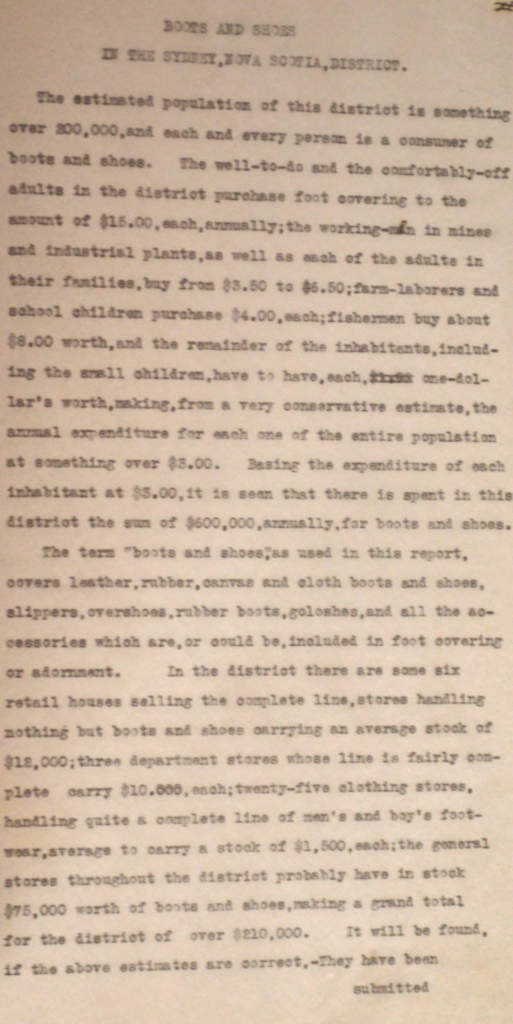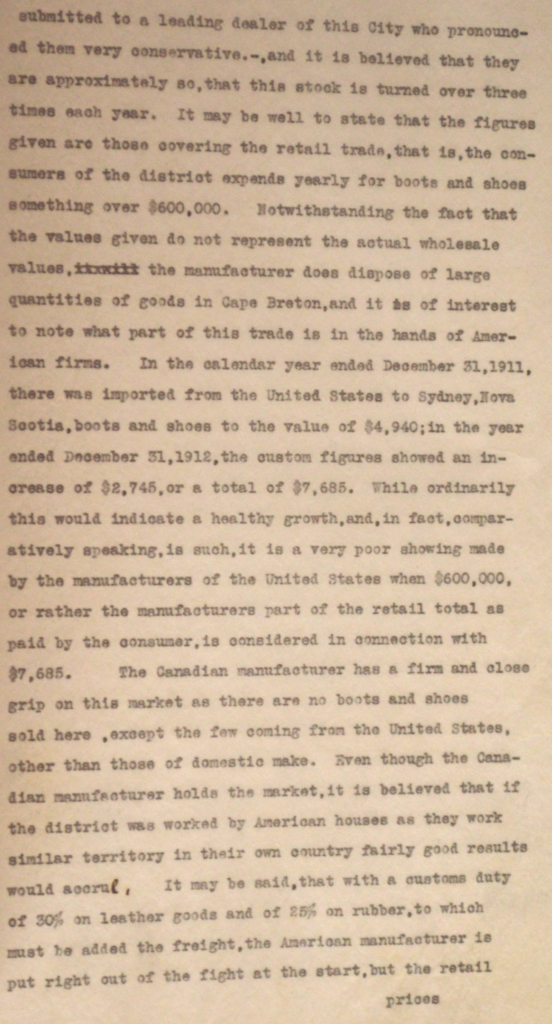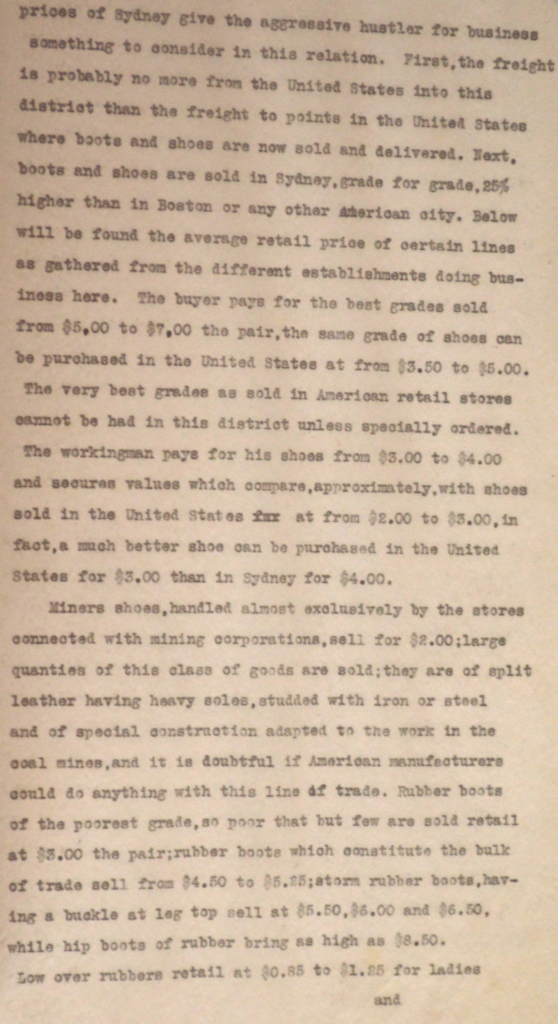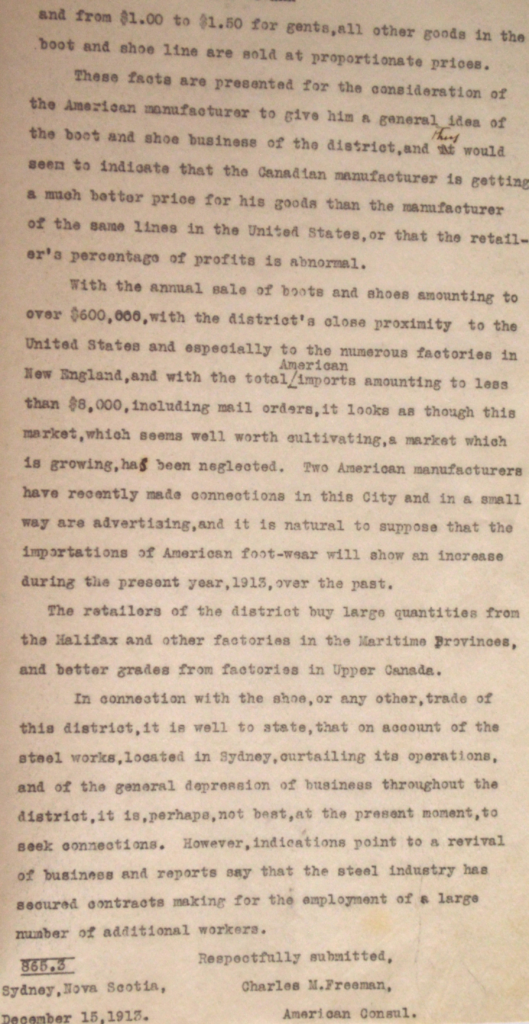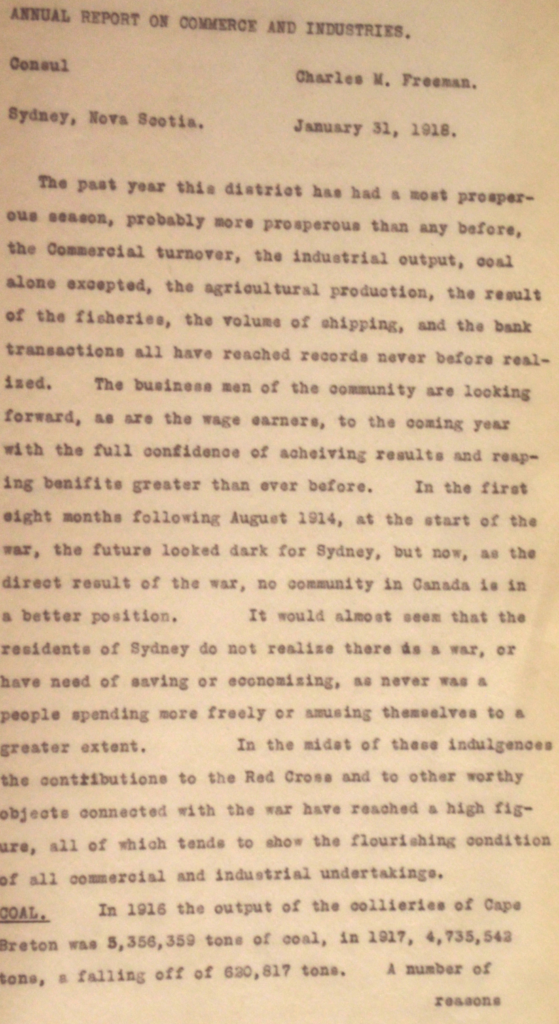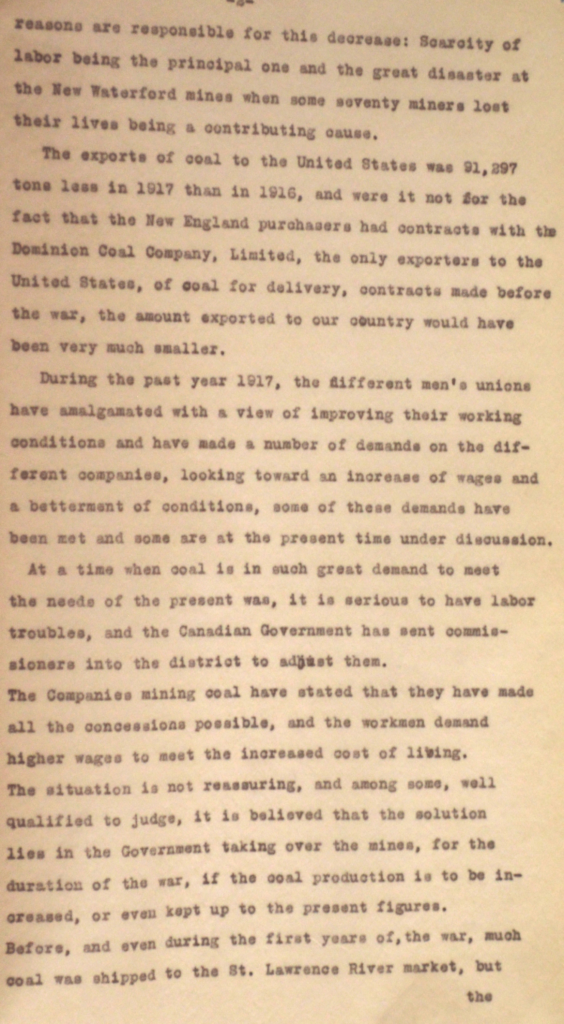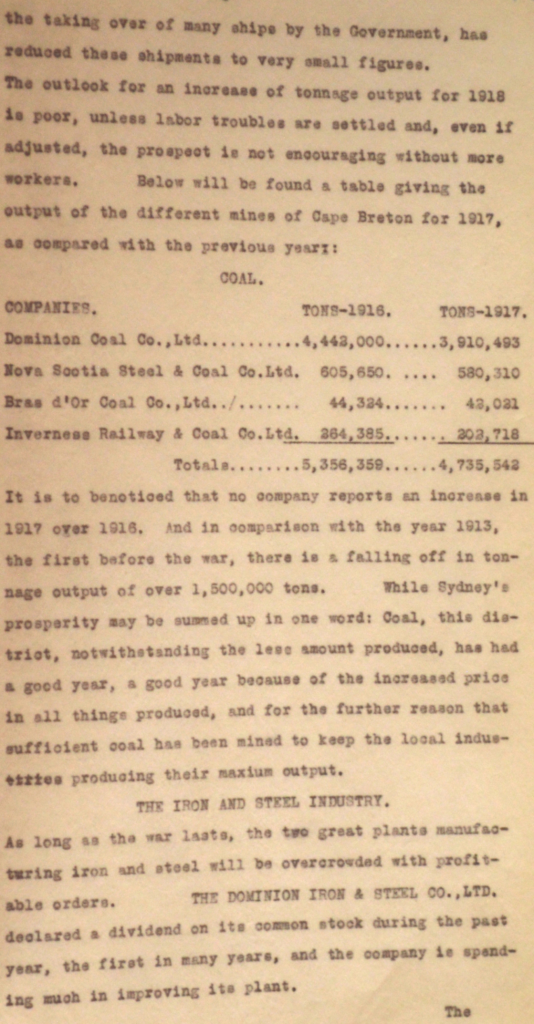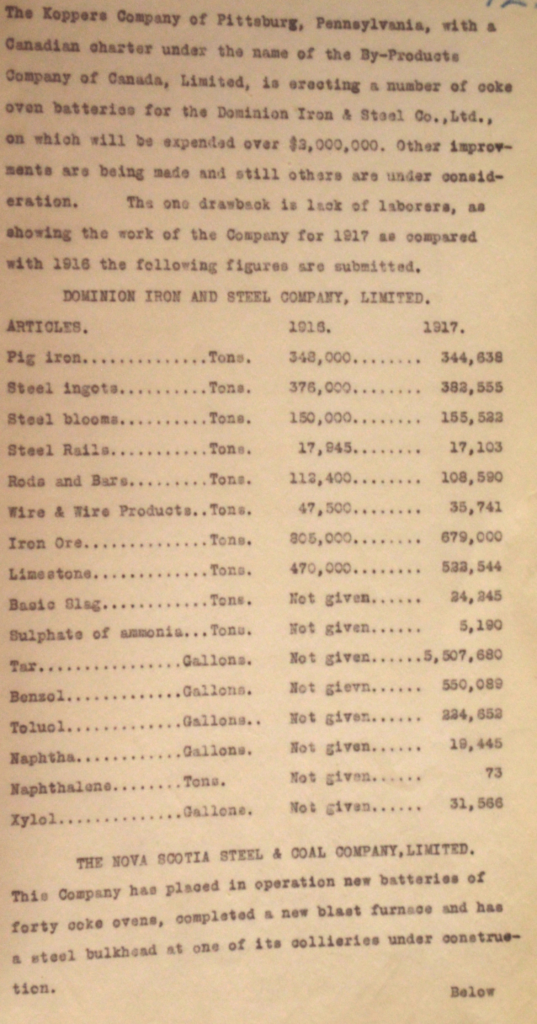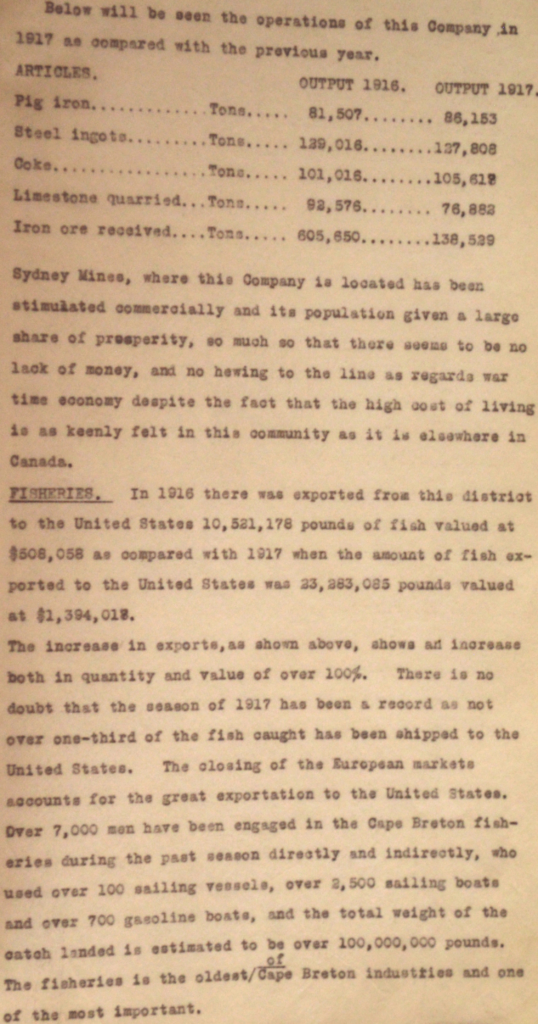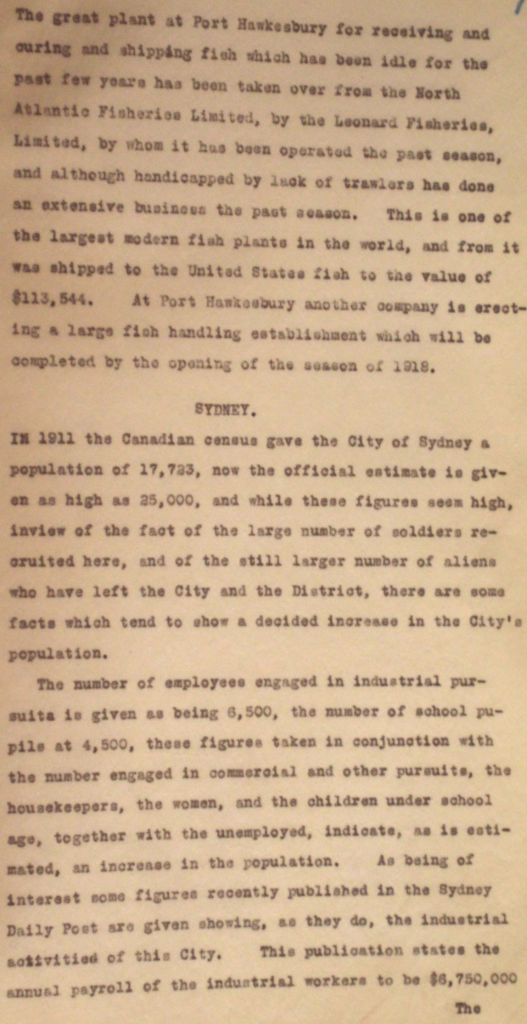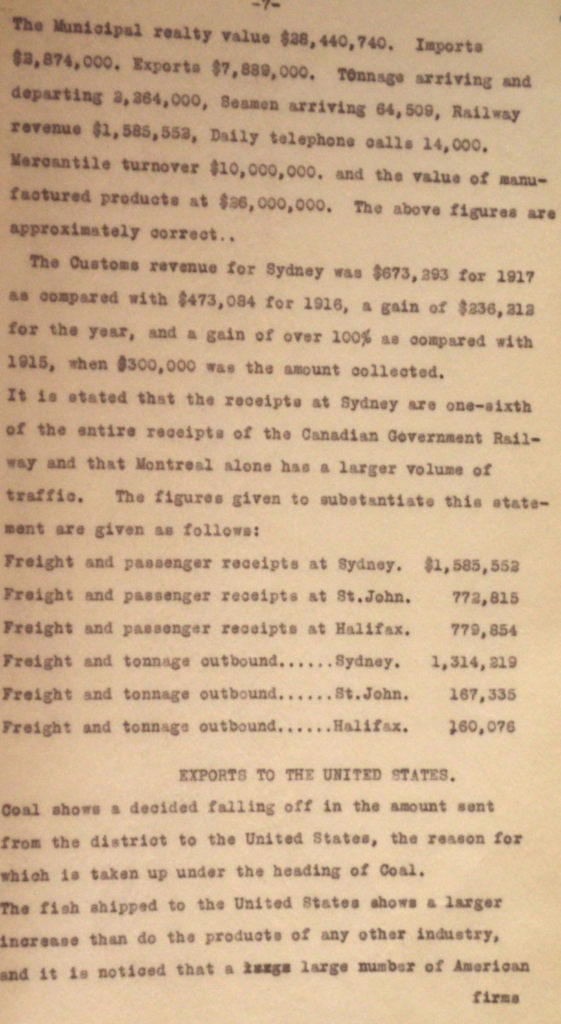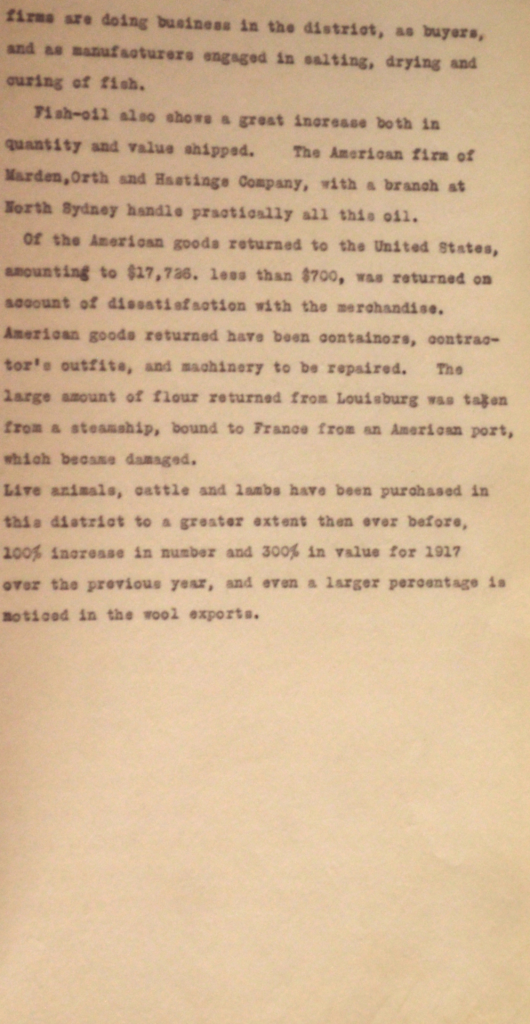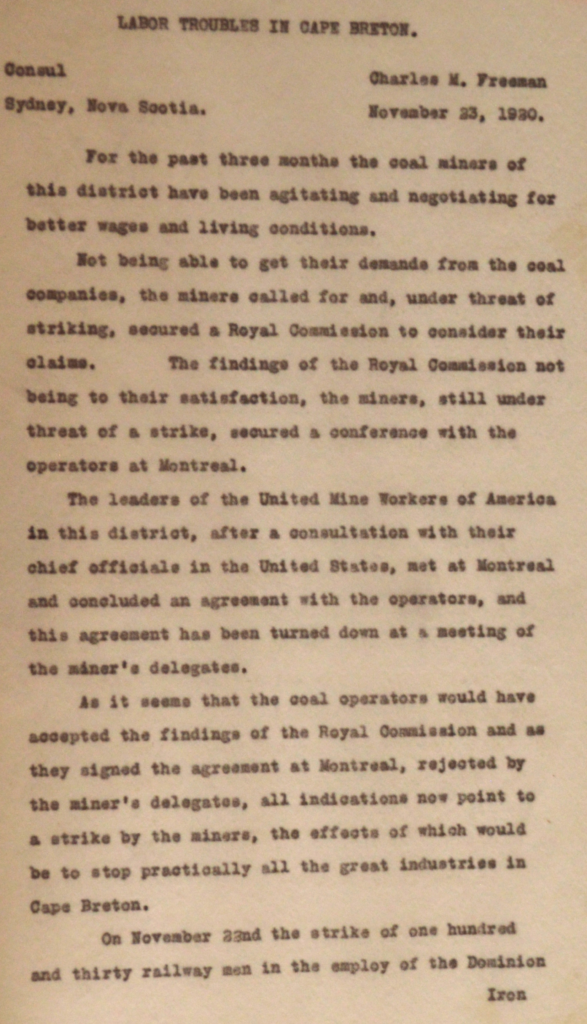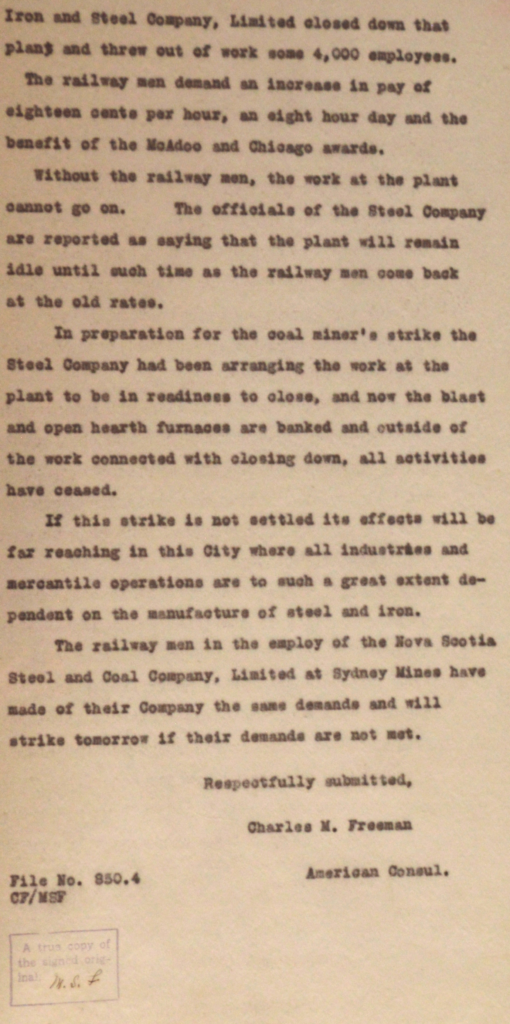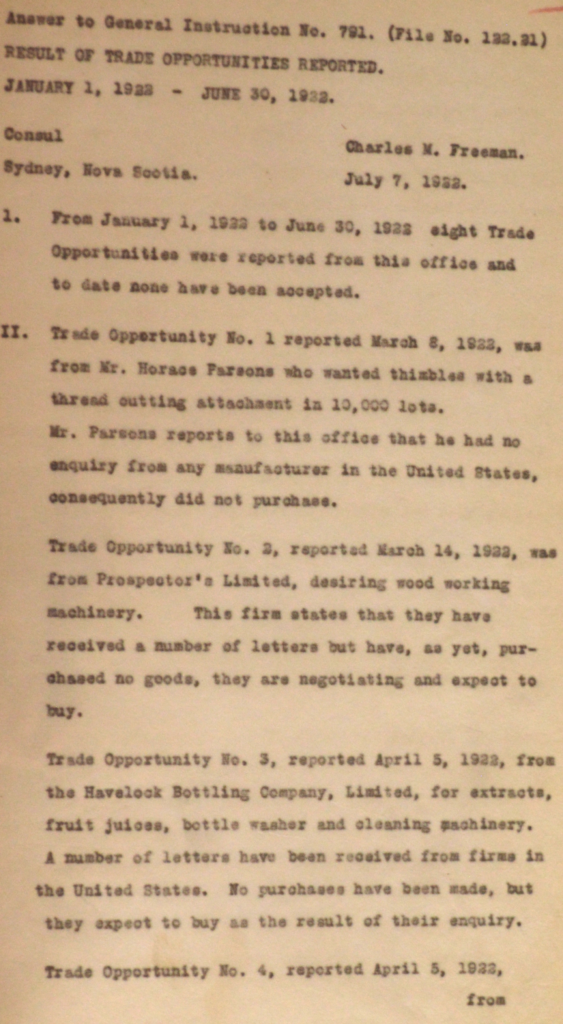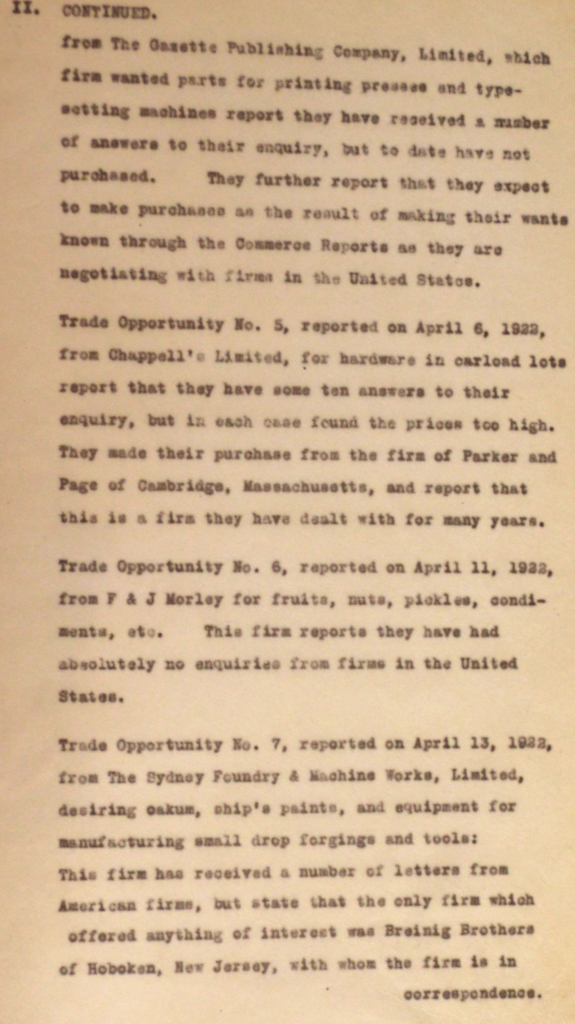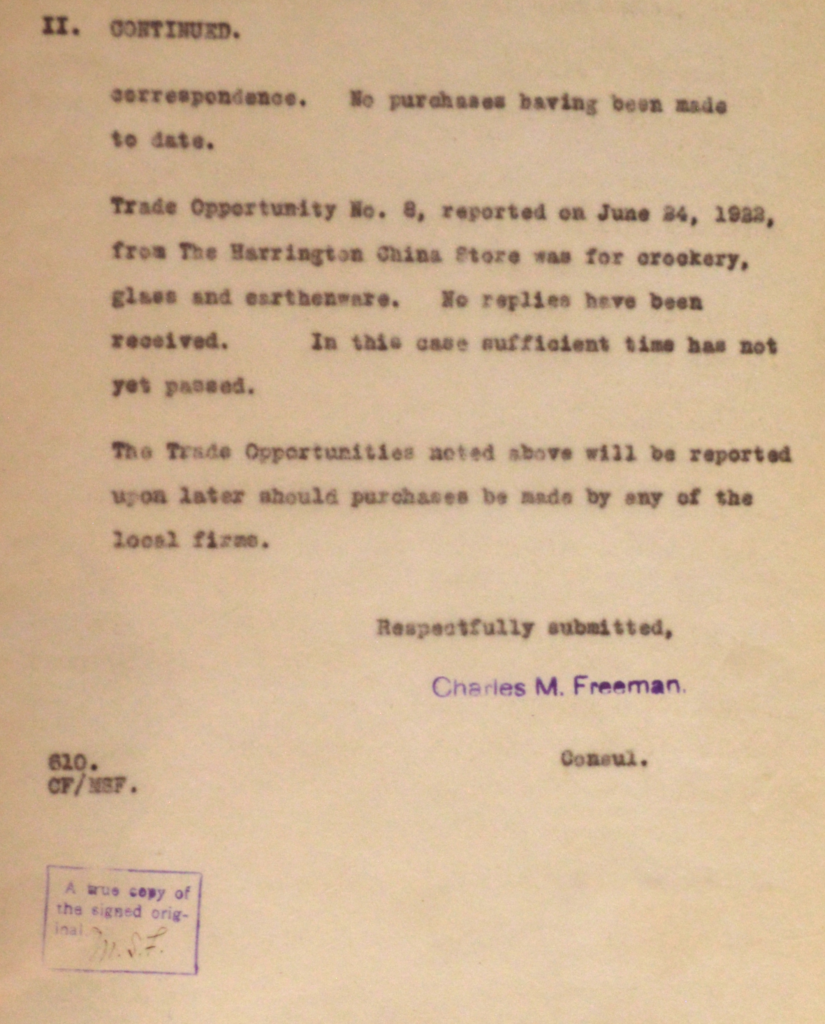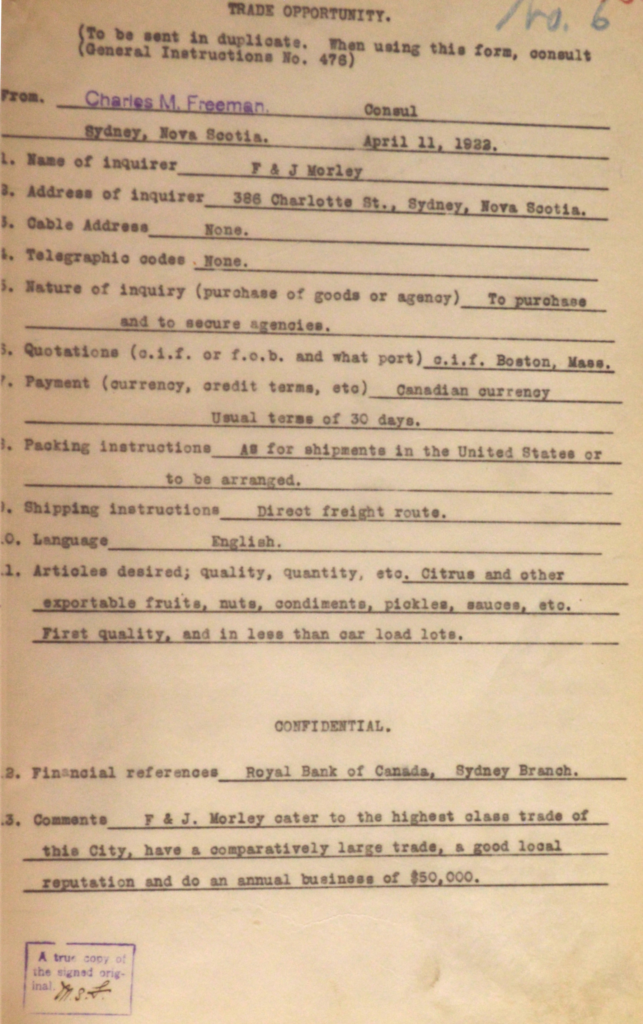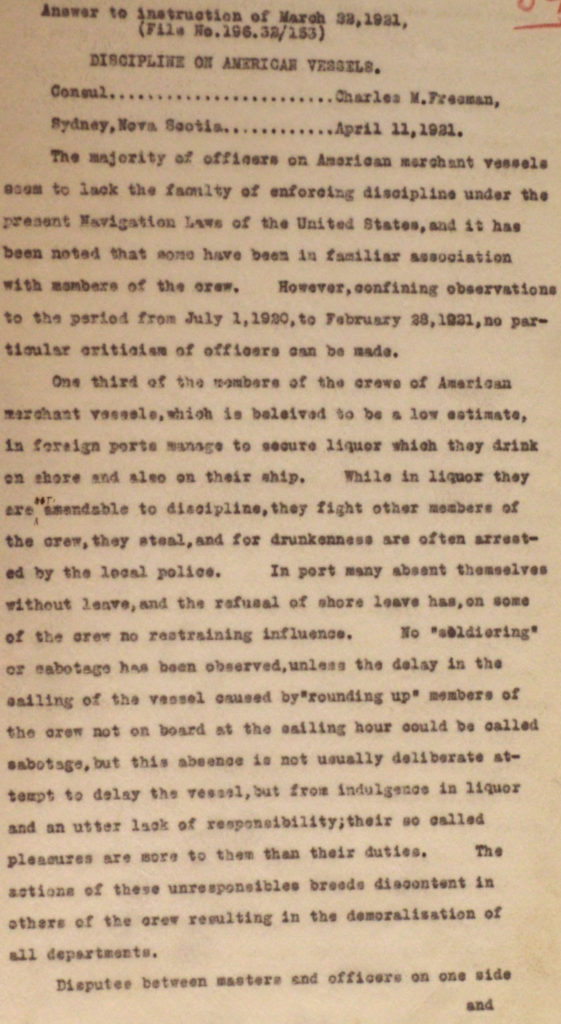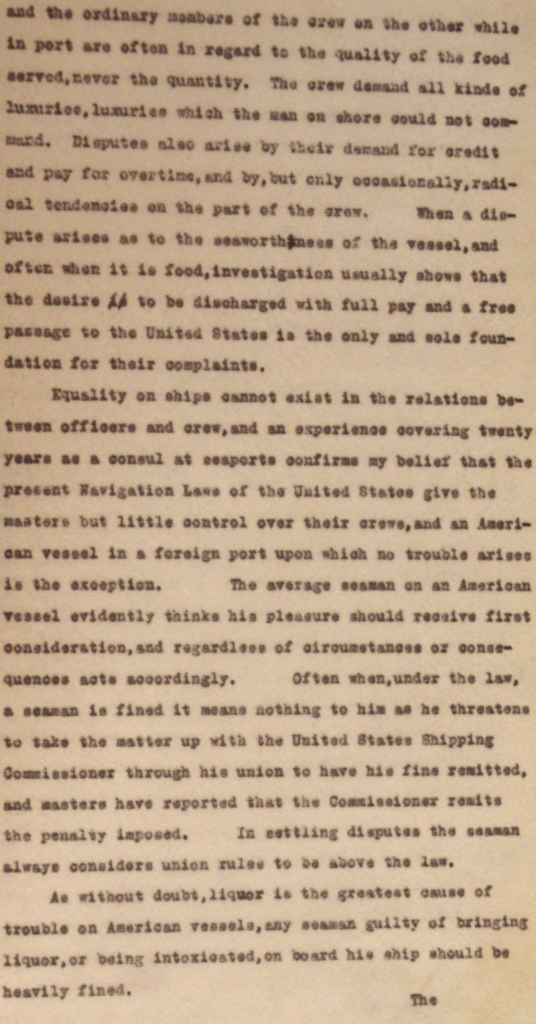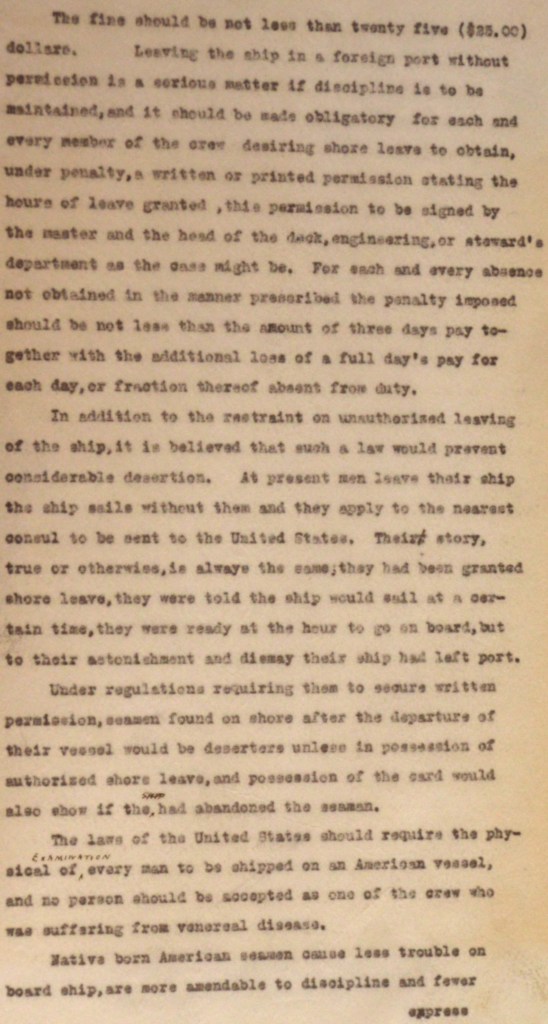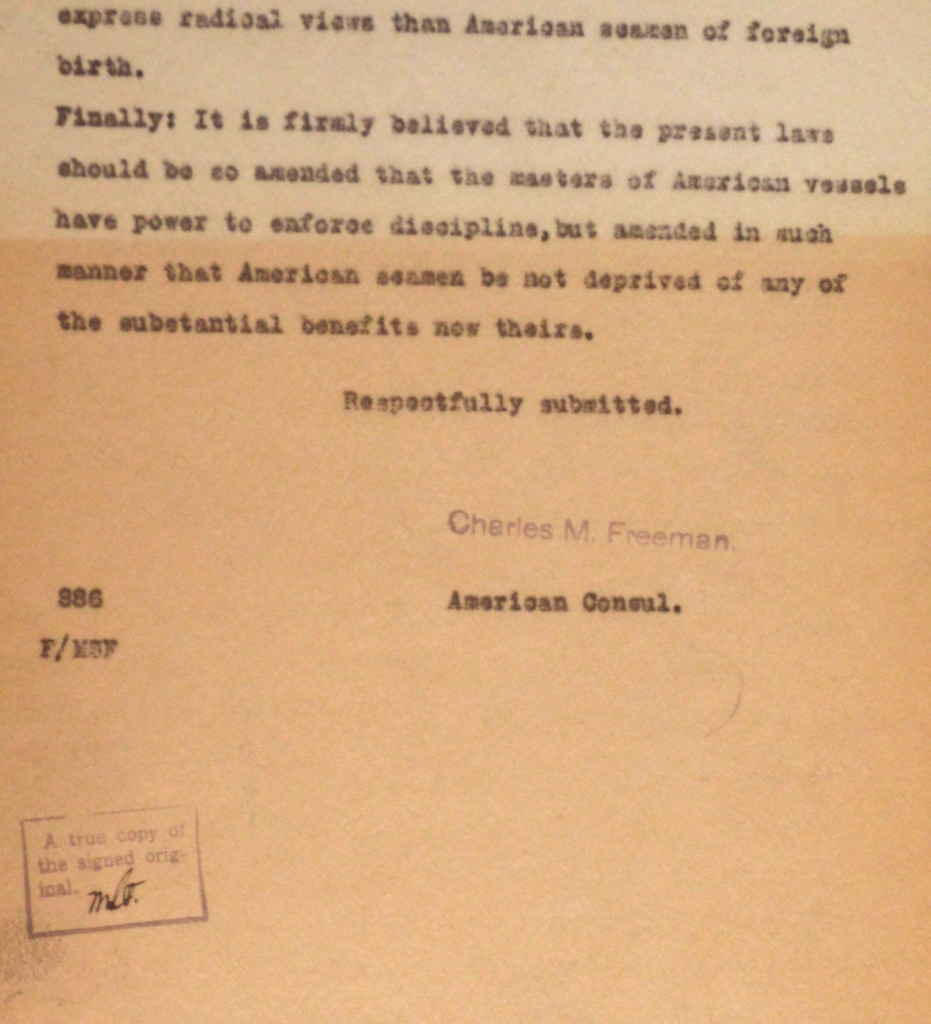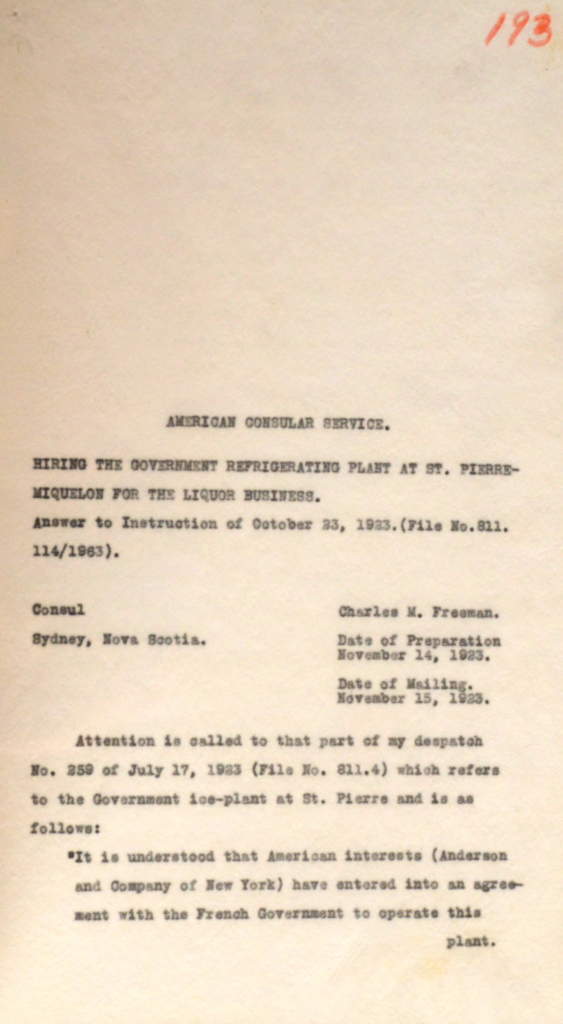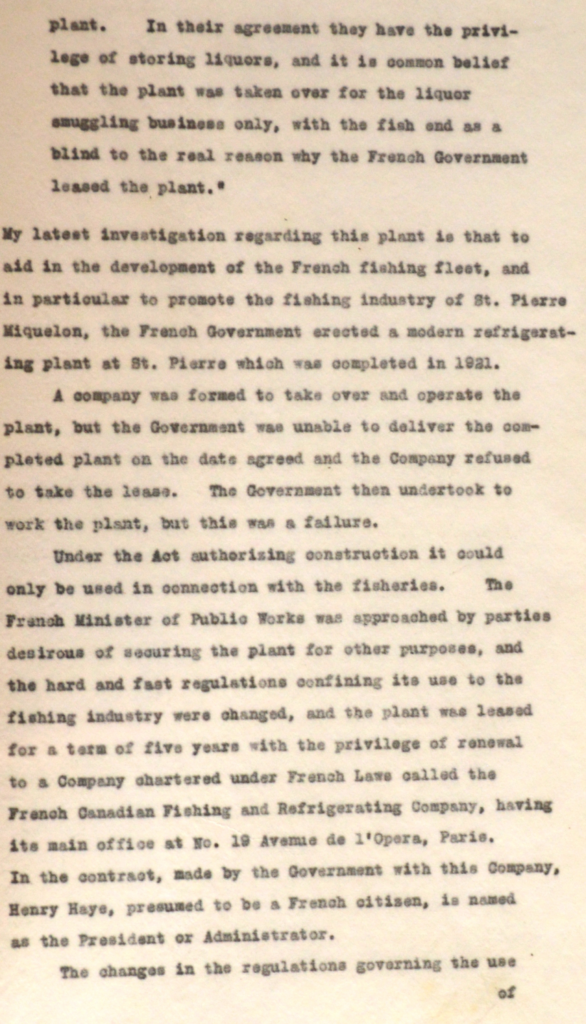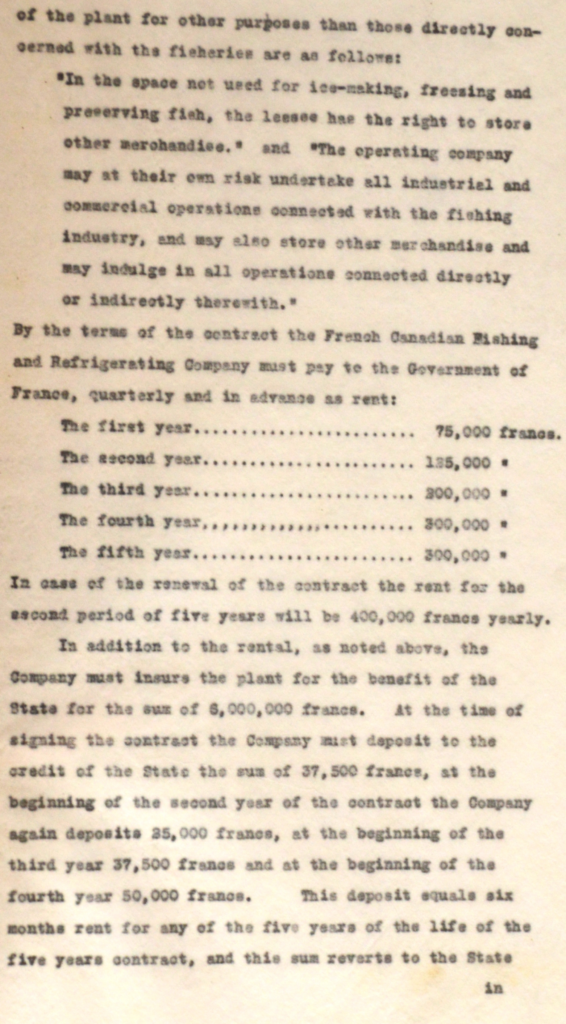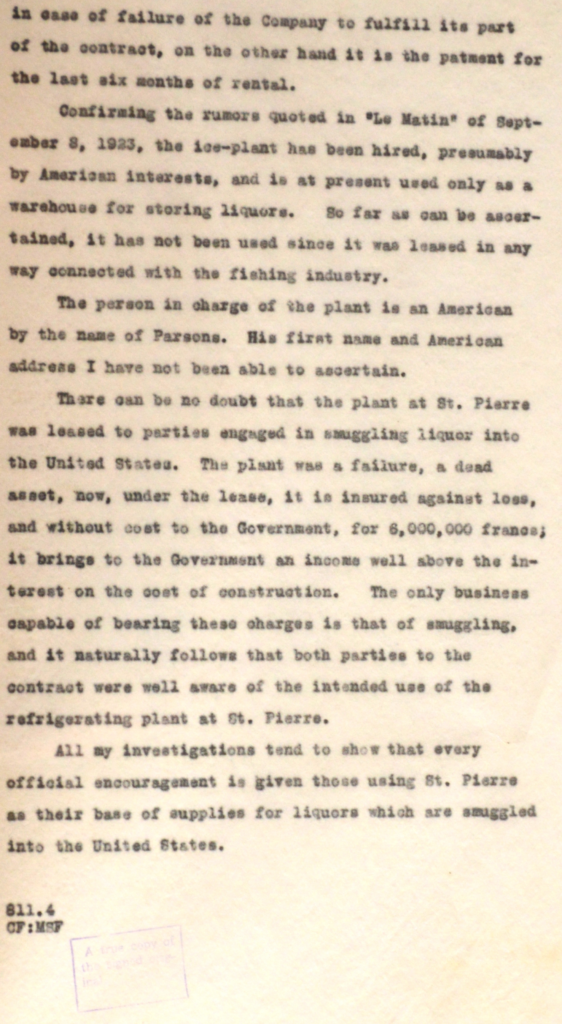Reports by Charles Freeman Sent to the US State Department
Within the Freeman Collection are three binders of reports written by Charles Freeman and other employees of the Consulate in Sydney for the U.S. State Department, beginning in December 1911 and ending in November 1924. The binders contain only outgoing correspondence and were diligently prepared to include very detailed information. Charles Freeman took his responsibility as U.S. Consul very seriously and put a lot of time and effort into preparing these reports and providing the State Department with accurate information. The content of the reports relates primarily to the economic progress and labor situation in Industrial Cape Breton throughout this period. They provide a glimpse into the responsibilities of the Consulate and its employees, and some insight into the types of information officials within the U.S. State Department instructed consuls to observe, research and report.
The Cost of Living (October 29, 1912)
Charles Freeman was responsible for reporting on the living conditions throughout his consular district. During his posting, Freeman often complained to the U.S. State Department about the high cost of living in Sydney and the shortage of houses. In the report below, from October 29, 1912, he comments on the high cost of living by including a breakdown of monthly expenses for a family whose breadwinner was employed as a mechanic. He also included a list of the prices of everyday household items.
Boots and Shoes in Sydney, Nova Scotia District (December 15, 1913)
Charles Freeman’s work included researching the potential for certain American products to be sold in markets within Industrial Cape Breton, as requested by the U.S. Department of State. Below, Freeman explains the potential of importing and selling American made boots and shoes to Industrial Cape Breton. The report was submitted on December 15, 1913, and the following March an article appeared in the New York Times, quoting Freeman and encouraging American retailers to consider exporting boots and shoes to Cape Breton Island.
Annual Report of Commerce and Industries (January 31, 1918)
One of the primary duties of the U.S. Consulate in Sydney was to report on the commercial conditions within the district. Often the task was conveyed in quarterly and annual reports. While the content of these reports changed throughout Charles Freeman’s time in Sydney, the format of the reports remained the same. Below is an example of an Annual Report on the Commerce and Industries for 1917. Freeman submitted the report to the U.S. State Department on January 31, 1918. Within the report, you will find a summary of the economic conditions of the district’s major industries: coal, steel and fisheries for 1917, and exports going to the United States. Freeman also comments on the spending habits of individuals in Cape Breton during wartime.
Labor Troubles in Cape Breton (November 23, 1920)
After World War I, Charles Freeman’s reports were dominated by the details surrounding Cape Bretons’ labor unrest between the workers and employers in the coal, iron and steel industries. The report shared below from November 1920, documents a labor dispute and strike by the railway workers from the Dominion Iron and Steel Company.
Trade Opportunity (April 11, 1922) & Results of Trade Opportunities (July 7, 1922)
One of the United States Consulate’s responsibilities was to facilitate trade opportunities to and from the United States. Locally, Charles Freeman and his team could assist local merchants or retailers trying to purchase American made goods or those who wanted to sell their products to American markets. He could also help American retailers and manufacturers who wanted to sell their products to retailers in Cape Breton. Large corporations used purchasing agents to buy or ship American made products, or purchased them from large commercial centres such as Halifax, Toronto or Montreal. As a result, Freeman and the Consulate staff usually assisted smaller or mid-sized commercial enterprises.
Below you will find a Trade Opportunity report from April 11, 1922, from local retailer F & J Morley, who operated Morley’s Store on Charlotte Street for many years. They were interested in acquiring citrus fruits, nuts, condiments and pickles from the United States. Attached to this report you will find the results of the firm’s request, reported to the U.S. State Department by Charles Freeman on July 7, 1922. The firm reported that they had no replies to their request from American firms.
Discipline on American Vessels (April 11, 1921)
The U.S. Consulate devoted a great deal of time handling the affairs of American seamen stationed on vessels that called at the ports within the district. Below you will find a report from 1921 in which Charles Freeman is complaining to the U.S. State Department about the disorderly conduct of seamen visiting his district and what he feels should be done to rectify the situation.
Hiring the Government Refrigerating Plant at St. Pierre-Miquelon for the Liquor Business (November 14, 1923)
From time to time, Freeman was instructed by the U.S. State Department to investigate illegal activities. In the report below from November 1923, Freeman examined a refrigerating plant on the French island of St. Pierre rented by American businessmen. The State Department suspected that the Americans were using the plant to store liquor to be smuggled illegally into the United States. This was during Prohibition, from 1920-1933, when the United States had a nation-wide ban on the production, importation, transportation and sale of alcoholic beverages.
